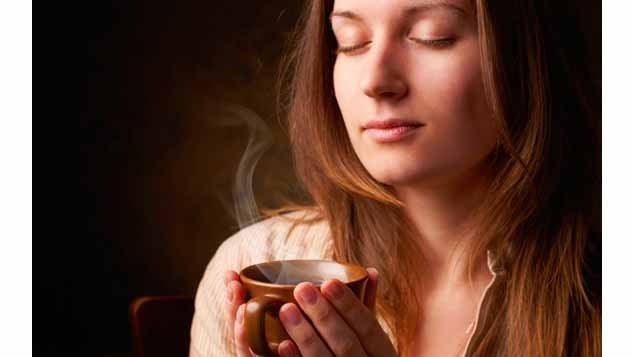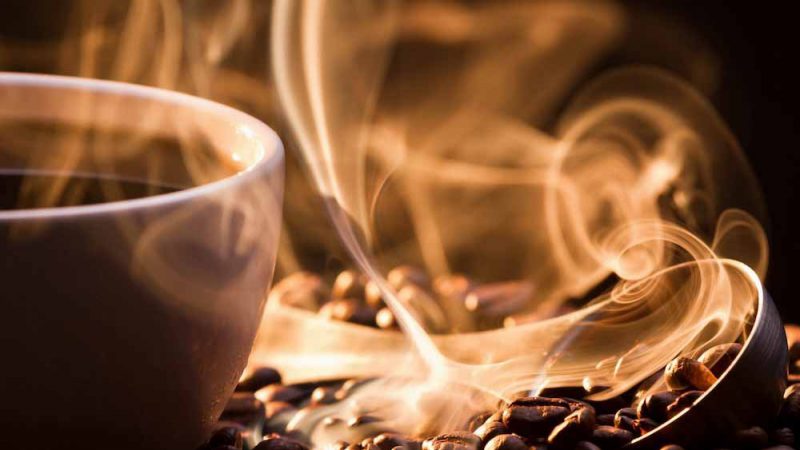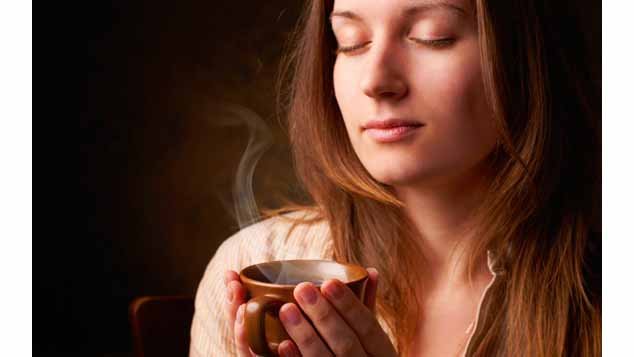Wake Up, Smell the Coffee … and Succeed
New research suggests that just the scent of coffee can stimulate the senses and sharpen the brain
January 23, 2020

As the Global Wellness Summit prepares for its 14th annual gathering in Tel Aviv in November, one of the topics to be explored will be the way fragrances can help us in our daily lives.
The invitation-only international gathering brings together leaders and visionaries to shape the future of the $4.5 trillion global wellness economy. Held in a different location each year, Summits have taken place in the US, Switzerland, Turkey, Bali, India, Morocco, Mexico, Austria, Italy and Singapore.
Among the topics explored in last fall’s Summit, these were the top ten topics:
1. Well Fashion – Way Beyond Athleisure
A new era of sustainable, ethical, intelligent, healing, more inclusive and meaningful clothing is on the rise
2. Wellness Takes on Overtourism
Worldwide, more than 1.3 billion people travel internationally annually, up from 500 million trips in 1995. The problem is, they all want to see the Mona Lisa.
3. Meditation Goes Plural
No more singular, generic “meditation.” People will get clearer about the core meditation types and their unique brain impacts—just as this explosive market will bloom into many varieties
4. Prescribing Nature
There is enough science about the health benefits of nature to get the attention of the medical profession.
5. China – Uncovering the Wealth in Wellness
China’s unprecedented economic growth, political influence and technological advances have transformed the country into a global powerhouse. Given the size of the market and its growing middle class, China’s influence is now impacting the global wellness industry.
6. Nutrition Gets Very Personalized
Diet confusion, new tech and the “power of me” propel personalized nutrition into mainstream
7. Dying Well
It’s called the “death positive” movement, and everything around dying is getting radically rethought—from making the experience more humane to mourning and funerals getting reimagined to people actively exploring death as part of a mentally healthy life. Finally, a “better death” is becoming integral to the idea of a “well life.”
8. MediScent: Fragrance Gets a Wellness Makeover
A new understanding of scent’s crucial role in our physical and emotional wellbeing is transforming how we think about, nurture, and use our sense of smell.
Scent of Success
This last topic is one that is getting a lot of attention lately, not only from spas and workplaces but also consumer electronics inventors who seek ways to sense moods and needs and deliver the right scent on cue.
To that end, drinking coffee seems to have its perks. In addition to the physical boost it delivers, coffee may lessen our risk of heart disease, diabetes and dementia. Coffee may even help us live longer. Now, there’s more news: research at Stevens Institute of Technology reveals that the scent of coffee alone may help people perform better on the analytical portion of the Graduate Management Aptitude Test, or GMAT, a computer adaptive test required by many business schools.
The work, led by Stevens School of Businessprofessor Adriana Madzharov, not only highlights the hidden force of scent and the cognitive boost it may provide on analytical tasks, but also the expectation that students will perform better on those tasks. Madzharov, with colleagues at Temple University and Baruch College, recently published their findings in the Journal of Environmental Psychology.
“It’s not just that the coffee-like scent helped people perform better on analytical tasks, which was already interesting,” says Madzharov. “But they also thought they would do better, and we demonstrated that this expectation was at least partly responsible for their improved performance.” In short, smelling a coffee-like scent, which has no caffeine in it, has an effect similar to that of drinking coffee, suggesting a placebo effect of coffee scent.
In their work, Madzharov and her team administered a 10-question GMAT algebra test in a computer lab to about 100 undergraduate business students, divided into two groups. One group took the test in the presence of an ambient coffee-like scent, while a control group took the same test — but in an unscented room. They found that the group in the coffee-smelling room scored significantly higher on the test.
Madzharov and colleagues wanted to know more. Could the first group’s boost in quick thinking be explained, in part, by an expectation that a coffee scent would increase alertness and subsequently improve performance?
The team designed a follow-up survey, conducted among more than 200 new participants, quizzing them on beliefs about various scents and their perceived effects on human performance. Participants believed they would feel more alert and energetic in the presence of a coffee scent, versus a flower scent or no scent; and that exposure to coffee scent would increase their performance on mental tasks. The results suggest that expectations about performance can be explained by beliefs that coffee scent alone makes people more alert and energetic.
Madzharov, whose research focuses on sensory marketing and aesthetics, is looking to explore whether coffee-like scents can have a similar placebo effect on other types of performance, such as verbal reasoning. She also says that the finding – that coffee-like scent acts as a placebo for analytical reasoning performance – has many practical applications, including several for business.
“Olfaction is one of our most powerful senses,” says Madzharov. “Employers, architects, building developers, retail space managers and others, can use subtle scents to help shape employees’ or occupants’ experience with their environment. It’s an area of great interest and potential.”
The Nue Co., a UK natural supplement company, has created the first anti-stress supplement that can be worn as a fragrance. Dubbed “Functional Fragrance,” the new scent is unisex and was developed using data insight and research into the connection between cognitive function and the olfactory system.
The research of scent’s impact on learning and cognition will flourish over the next few years. Already, studies of rosemary’s effect on cognition indicate that being exposed to the aroma helps people perform mental tasks faster and more accurately. And, a positive side effect is the feel-good factor of aromatherapy: The subjects’ moods improved with exposure to the rosemary aroma.
Get a Whiff of the Future
• New vehicles feature a host of sensors and AI functions that enable auto manufacturers to interpret a driver’s mental/physical state. This has opened up the exploration of how scent could be used to minimize negative/dangerous driving behaviors, such as aggression (road rage) or sleepiness.
• Fragrances will also have a very functional use in future industrial applications: Equipment makers are exploring integrating “scent alarms” into equipment that is “out of sight” (perhaps underground, within walls, or in a control room)—a certain scent would be released to alert maintenance that service is required.
• Many spaces already use functional fragrances to make people feel a certain way (awake in a casino or predisposed to spend in a shop, for example). However, the future will likely bring more widespread use of fragrances in busy, urban environments, such as cities, accessing personal sensors and big data to identify stressed-out parts of the city and then deploying a calming scent.





